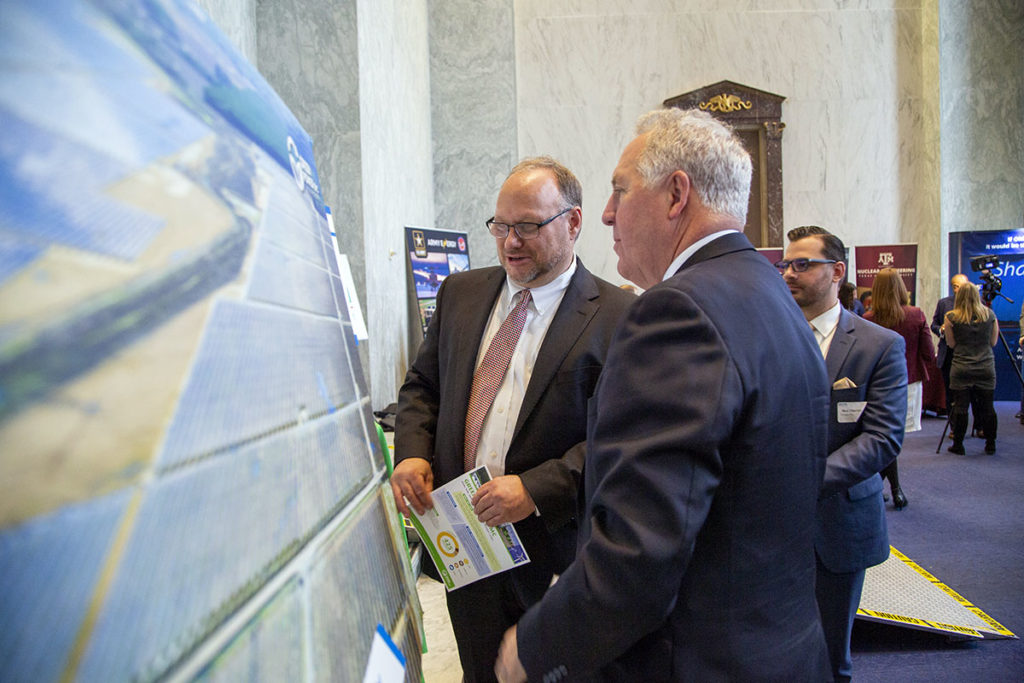
Renewable energy technologies pose both opportunities and challenges for rural America, the president of Georgia’s Green Power EMC told a House panel Tuesday.
“Georgia’s rural communities have reaped financial benefits from solar projects, which have created thousands of construction jobs and boosted tax revenue for local governments,” Jeff Pratt testified at a House Agriculture Subcommittee on Commodity Exchanges, Energy and Credit hearing on the renewable economy in rural America.
Despite the economic benefits brought by the growing number of solar projects, “some communities have been challenged to find a balance between the competing interests of solar land use and traditional farming operations,” Pratt said.
To help remedy that, Green Power EMC and its members are employing regenerative agriculture practices, Pratt said.
“Herds of sheep reside part-time at the solar farms and graze beneath the solar panels,” he said. “As sheep bite off the tops of plants, keeping vegetation from shading the solar panels, they fertilize the soil, causing more plants to grow. This agricultural practice is designed to improve soil health, sequester carbon, and boost water quality on land used for solar power generation.”
Green Power EMC is a not-for-profit cooperative founded 20 years ago to help 38 of Georgia’s electric co-ops secure renewable energy resources.
“In the past six years, Georgia’s cooperatives have grown their solar portfolio by 8,000%, utilizing approximately 15,000 acres of land in rural Georgia,” Pratt testified. “These solar projects will collectively produce enough electricity to serve more than 270,000 households each year.”
There are inherent challenges in relying on the sun for power, Pratt said.
“While solar is among the lowest cost of energy in Georgia, its intermittent nature presents technical and economic challenges as it becomes a larger percentage of our electricity generation portfolio,” he said.
The growing volume of solar power means that more investment is needed in technologies such as battery storage and energy management control systems to maintain reliability, Pratt said.
“To manage intermittency, Georgia co-ops maintain reliable base load energy, such as nuclear generation, to serve as a foundational resource necessary for periods when sunshine is not available—such as night hours or during cloudy conditions,” he said.
While Georgia’s co-ops continue to expand their use of renewable energy, they need access to direct-pay incentives from the federal government to reduce the cost of energy innovation, Pratt told lawmakers.
“As not-for-profit businesses, current law does not allow electric co-ops to access the full value of clean energy tax incentives available to taxable businesses,” Pratt said. “Electric cooperatives need access to direct-pay tax incentives to reduce the cost of energy innovation projects, including the deployment of renewables, nuclear energy and other emerging technologies; the expansion of energy storage projects; and installation of electric charging infrastructure.”
NRECA worked to ensure that direct-pay incentives for co-ops are included in the current draft of the Build Back Better Act, which awaits a vote in the House. If passed, it would go to the Senate for approval.
Erin Kelly is a staff writer for NRECA.